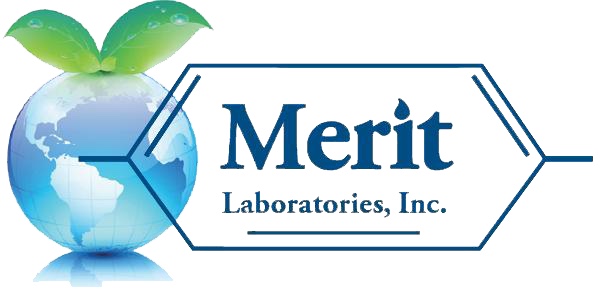The Wisconsin PFAS Action Council published its 2022 PFAS Action Plan Progress Report in August. The progress report presented progress in the eight themes that are covered in the states PFAS Action Plan to address statewide PFAS contamination.
A few of the highlights presented as accomplishments in the report include the implementation of new surface water and drinking water standards for PFOA and PFOS and the initiation of legal actions against 18 companies for causing widespread PFAS contamination in Wisconsin. According to the report, the following accomplishments for the eight themes include:
Standard Setting
Developed and implemented administrative rules for new standards regulating PFOA and PFOS in surface water and drinking water. These rules went into effect on Aug. 1, 2022.
Implemented a hazard index approach for evaluating potable well sampling results using the Dept. of Health Services’ (DHS) recommended groundwater standards.
Released Best Management Practices (BMPs) and resources for disposal of waste containing PFAS and biosolids management.
Sampling
Continued development of a public-facing map that will merge multiple PFAS datasets into a single interactive tool. This map is expected to be published in fall 2022.
Collected and analyzed more than 100 wastewater samples for PFAS.
The DNR and the DHS worked with the EPA to fund, develop and deploy a voluntary municipal drinking water system sampling program, in which more than 125 systems participated.
Initiated a statewide voluntary sampling project of 450 private wells to assess the prevalence and distribution of PFAS in shallow groundwater across Wisconsin, also in coordination with the EPA.
Sampled water bodies and fish throughout Wisconsin to allow for a better understanding of the distribution and impact of PFAS contamination.
Pollution Prevention
Launched the PFAS External Advisory Group, which includes both the Wisconsin State Fire Chiefs Association (WSFCA) and Wisconsin Airport Management Association (WAMA).
Worked in partnership with the firefighting community to develop a Best Management Practice (BMP) resource about firefighting foam.
Implemented permanent administrative rules that limited the use of PFAS-containing firefighting foam and set standards for PFAS compounds in surface water, including regulation of PFAS discharges in wastewater permits. Both of these rules became effective on Aug. 1, 2022.
Worked with partners to explore opportunities within Green Tier to support stakeholders working towards pollution prevention.
Developed an interim strategy for handling PFAS-impacted biosolids.
Education, Engagement, and Communication
Expanded information about PFAS on the DNR and DHS websites to ensure information is current, relevant and accessible to the general public.
Partnered with and supported local governmental units impacted by PFAS to assist with communications and provide technical assistance. These efforts included information specific to each community and examples of community engagement the local government could use as templates for their communication planning.
Created the PFAS External Advisory Group and the PFAS Technical Group to enhance the conversation about PFAS initiatives with stakeholders.
Established the Office of Environmental Justice to ensure meaningful representation by all people and communities during environmental policymaking and equitable implementation and enforcement.
Research and Knowledge
Provided support to and collaboration with academic researchers at UW-Madison, UW-Milwaukee and UW-Green Bay for research on PFAS in environmental media such as air, water, soil and sediment, as well as PFAS within the consumer product waste stream.
Coordinated among state agencies, including the DNR and the State Lab of Hygiene, and academic researchers to share knowledge acquired during ongoing PFAS research to ensure efficiency and a broader understanding among partners.
Multiple WisPAC member agencies worked with UW Sea Grant to host a PFAS Workshop to coordinate a research agenda for Wisconsin. During this two-day event, 65 people representing eight universities, four state agencies, UW Survey of the Health of Wisconsin and UW Extension collaborated to identify gaps in PFAS research and develop research goals to address those gaps.
Continued coordination with and expansion of ambient monitoring in air, surface water, soil and fish.
Collaborated among the DNR, DHS and other stakeholders to research and develop resources for communities and individuals to navigate treatment and filtration systems for safer water.
Reviewed the EPA’s Interim Health Advisory Levels for two PFAS compounds in drinking water to inform DHS’ ongoing evaluation of state-level HALs.
Phase Out
Shared knowledge with the firefighting community to allow fire departments to take steps to minimize occupational risk of PFAS exposure and learn about alternatives to PFAS-containing firefighting foams.
Added an advisory to avoid products containing PFAS in Dept. of Administration’s procurement policy, which applies to all state agencies.
Future Investments
The DNR and Dept. of Agriculture, Trade and Consumer Protection worked with the firefighting community to develop and implement a $1 million firefighting foam waste collection and disposal program. Based on input from the firefighting community, approximately 25,000 gallons of foam waste will be collected through this program starting in late 2022.
Ongoing coordination and collaboration across multiple state agencies, including the DNR, DHS, Dept. of Military Affairs, and Dept. of Veterans Affairs. The Dept. of Military Affairs sought and secured additional financial resources for PFAS remediation at military sites in Wisconsin.
Collaborated with communities to develop and expand programs to administer the unprecedented funding available to address PFAS contamination through the Bipartisan Infrastructure Law.
Identify and Address Historic Discharges
Implementation of a streamlined construction authorization application process for utility work to address PFAS.
The State of Wisconsin, through the Dept. of Justice, has initiated a legal action against 18 major chemical companies for causing widespread PFAS contamination of Wisconsin’s natural resources.
Provided technical assistance and support to communities impacted by PFAS contamination.
Merit Laboratories, a leading national PFAS environmental laboratory with Wisconsin accreditation, analyzing drinking water, soil, wastewater, groundwater, and other sample matrices, including biosolids and sludge.

